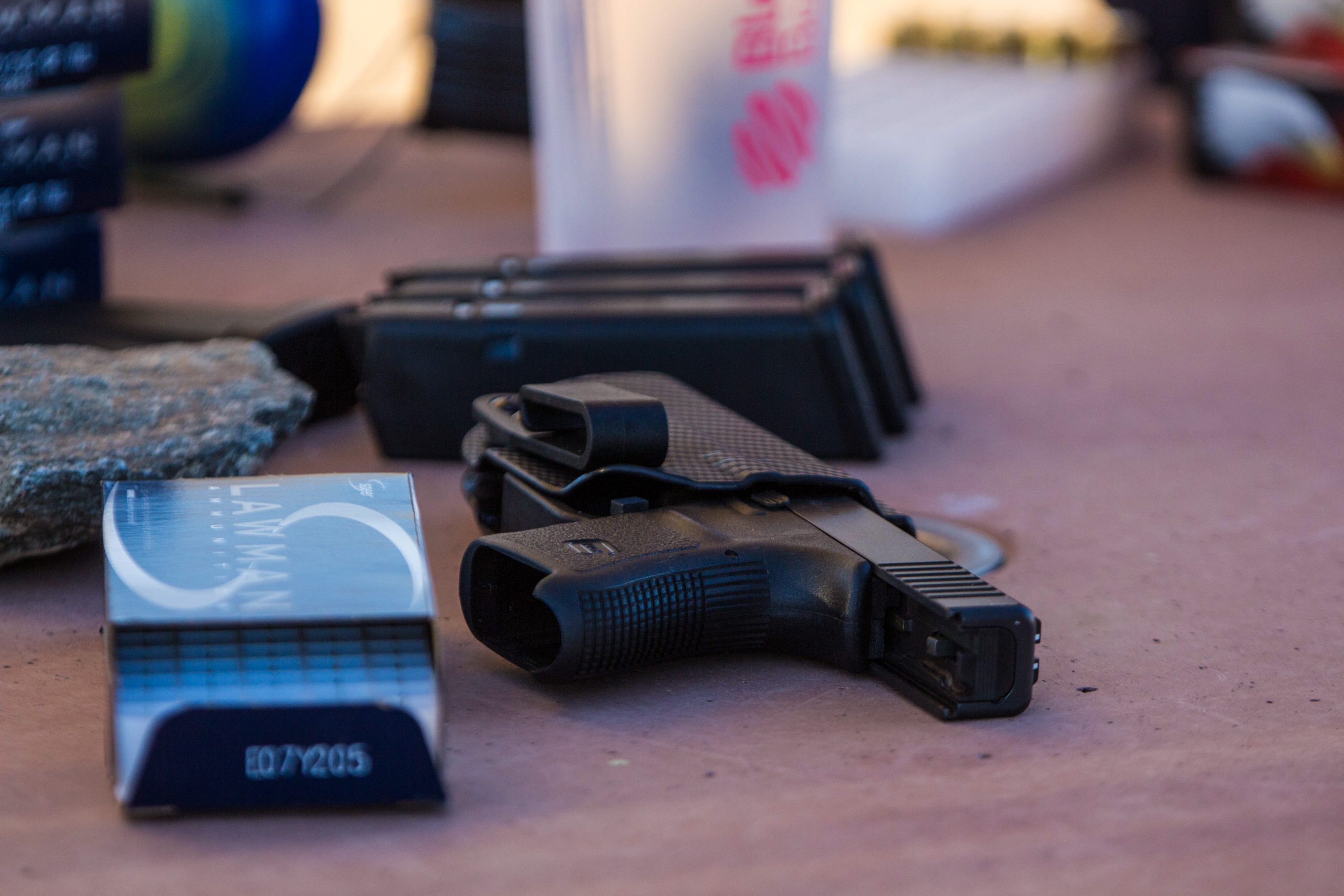Indianz.Com > News > Cronkite News: Supreme Court rules in domestic violence case

Supreme Court upholds gun ban on domestic abusers, defying its usual ideological split on Second Amendment rights
Monday, June 24, 2024
Cronkite News
WASHINGTON, D.C. — The U.S. Supreme Court ruled 8-1 on Friday to uphold a ban on gun possession by domestic abusers — a ruling that came as a huge relief to victims’ advocates in Arizona and across the nation.
“When an individual poses a clear threat of physical violence to another, the threatening individual may be disarmed,” Chief Justice John Roberts wrote.
The near-unanimous ruling to affirm limitations on Second Amendment rights defied the court’s usual ideological split. The sole dissent came from Justice Clarence Thomas, who had authored a 2022 ruling that vastly expanded gun rights on behalf of the conservative majority.
U.S. Supreme Court Decision in United States v. Rahimi, No. 22-915
Abusers use firearms as “an intimidation tactic,” said Cynthia Rodriguez, an associate director at A New Leaf, an Arizona group that helps people affected by domestic violence. “It doesn’t necessarily mean that they’re going to use them, but it’s a tool that’s used to show power against their victim.”
That, she said, makes it critical for courts to be able to take guns away from a violent partner.
Arizona saw 1,459 killings involving domestic violence from 2009 to 2022, three-quarters of them involving gun violence, according to a report from Arizona Coalition to End Sexual and Domestic Violence.
In 2020, 42 Arizonans were shot to death by an intimate partner, according to the National Violent Death Reporting System.
In 2019, Arizona ranked 11th for rates of femicide, according to the Violence Policy Center.

Women’s advocates see the federal gun ban on domestic abusers as a critical tool. “We’ve seen a dramatic, measurable, proven reduction in the homicide rate for domestic violence survivors. The reality is that without this law, survivors will have one less tool available to them to decide how they can protect themselves and their family,” said Sabrina Talukder, the director of the Women’s Initiative at Center for American Progress. Laws that restrict access to firearms by people who have committed domestic violence led to a 13% drop in killings among intimate partners, according to a 2018 study published in American Journal of Epidemiology. Talukder said “this decision should evoke a collective sigh of relief,” but worries about the future. “If the constitutionality of a sensible and effective law like this is up for grabs with the Supreme Court, it is terrifying to think what other gun safety laws are up for grabs in the future,” she said. For more stories from Cronkite News, visit cronkitenews.azpbs.org.June 21, 2024 – The National Indigenous Women’s Resource Center (NIWRC) applauds the U.S. Supreme Court’s decision today in United States v. Rahimi.
— National Indigenous Women's Resource Center (@niwrc) June 21, 2024
Read the full statement here: https://t.co/1wbGVMZnqN pic.twitter.com/RFLYxNjaiL
Note: This story originally appeared on Cronkite News. It is published via a Creative Commons license. Cronkite News is produced by the Walter Cronkite School of Journalism and Mass Communication at Arizona State University.
Search
Filed Under
Tags
More Headlines
‘Thank you for your leadership’: Sen. Lisa Murkowski (R-Alaska) to Sen. Brian Schatz (D-Hawaii)
Senate Committee on Indian Affairs Organizational Business Meeting
Alaska Beacon: Trump administration faces lawsuit over tribal gaming facility
Native America Calling: Medicaid’s next chapter in Indian Country
H.R.43, the Alaska Native Village Municipal Lands Restoration Act
H.R.42, the Alaska Native Settlement Trust Eligibility Act
H.R.226, the Eastern Band of Cherokee Historic Lands Reacquisition Act
House Subcommittee on Indian and Insular Affairs holds first hearing
Native America Calling: Rising home insurance rates put more Native Americans at risk
Citizen of Navajo Nation tapped for Indian Affairs post
Native America Calling: Native Bookshelf with Ann-Helén Laestadius
‘Collateral damage’: Indian education roiled by President Trump’s anti-DEI directives
Secretary Doug Burgum takes over Department of the Interior
Health and Human Services nominee responds to written questions about Indian health
Senate Committee on Indian Affairs schedules first meeting of 119th Congress
More Headlines
Senate Committee on Indian Affairs Organizational Business Meeting
Alaska Beacon: Trump administration faces lawsuit over tribal gaming facility
Native America Calling: Medicaid’s next chapter in Indian Country
H.R.43, the Alaska Native Village Municipal Lands Restoration Act
H.R.42, the Alaska Native Settlement Trust Eligibility Act
H.R.226, the Eastern Band of Cherokee Historic Lands Reacquisition Act
House Subcommittee on Indian and Insular Affairs holds first hearing
Native America Calling: Rising home insurance rates put more Native Americans at risk
Citizen of Navajo Nation tapped for Indian Affairs post
Native America Calling: Native Bookshelf with Ann-Helén Laestadius
‘Collateral damage’: Indian education roiled by President Trump’s anti-DEI directives
Secretary Doug Burgum takes over Department of the Interior
Health and Human Services nominee responds to written questions about Indian health
Senate Committee on Indian Affairs schedules first meeting of 119th Congress
More Headlines